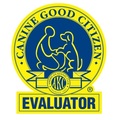-
Victor Haratine
- PackMates Professional Dog Trainers - Dacula, GA
- Dacula, GA - PackMates is a distinguished veteran-owned and family-operated pet service business, dedicated to enriching the lives of dogs and their owners in Dacula and the surrounding Gwinnett County...
-
(2 reviews)
-
- Online Sessions
- Request Quote
- Bethany Jordan
- Rocket Science Private Dog Training and Behavior Solutions - Lexington, GA
- Lexington, GA - Rocket Science Training and behavior solutions is a mobile, in home behavior service that serves Athens, Atlanta, and surrounding areas. We utilize a systematic, science based curriculum...
-
-
- Online Sessions
- Request Quote
- Ellyn Smith
- We Talk Dog - Private Dog Training Service - Irondale, AL
- Irondale, AL - We Talk Dog provides high quality training, boarding, daycare, and grooming. For the past 3 years we have been voted the best Dog Daycare in Birmingham! We...
-
-
- Request Quote
-
Katherine Rollins
- All Creatures Country Club - Positive Dog Training - Greeneville, TN
-
 INSTANT
CHECKOUT
INSTANT
CHECKOUT
 CERTIFIED
CPDT-KA
CERTIFIED
CPDT-KA
 AKC CGC
EVALUATOR
AKC CGC
EVALUATOR
- Greeneville, TN - Welcome to All Creatures Country Club – Where Positive Training Builds Lifelong Bonds At our training center, we use only positive, reward-based methods—because your dog deserves the...
-
(2 reviews)
-
- Licensed
- Certified
- Online Sessions
- Book Now
- Telani Lasoleille
- The Cooperative Canine - Private Dog Trainers - Nashville, TN
-
 CERTIFIED
CPDT-KA
CERTIFIED
CPDT-KA
 AKC CGC
EVALUATOR
AKC CGC
EVALUATOR
- Nashville, TN - We provide professional, compassionate pet training and care services ranging from group dog and puppy training classes, private dog and puppy training lessons, in-home day training, dog...
-
-
- Certified
- Request Quote
-
Linda LeFauve
- Linda LeFauve Animal Behavioral Consultant - Denver, NC
-
 INSTANT
CHECKOUT
INSTANT
CHECKOUT
 RAPID
RESPONDER
RAPID
RESPONDER
 CERTIFIED
CPDT-KA
CERTIFIED
CPDT-KA
- Denver, NC - As a seasoned behavioral consultant with over a decade of experience, this professional excels in transforming the lives of fearful and fear-aggressive dogs. Armed with a Master's...
-
(2 reviews)
-
- Certified
- Online Sessions
- Book Now
- Michelle Patel
- Pet CPR and Pet First Aid Class - Jacksonville, FL
- Jacksonville, FL - As a dedicated pet professional with a deep passion for animal care, I have been serving pets for over 5 years, specializing in both dogs and cats....
-
-
- Request Quote
-
Karen George
- Always On Cue Dog Training - Gainesville, FL
-
 INSTANT
CHECKOUT
INSTANT
CHECKOUT
 USDA
REGISTERED
USDA
REGISTERED
 AKC CGC
EVALUATOR
AKC CGC
EVALUATOR
- Gainesville, FL - Karen George is a highly experienced nurse with over 23 years of experience. She is also an accomplished dog trainer, with nearly 21 years of experience in...
-
-
- Licensed
- Certified
- Insured
- BBB Accredited
- Online Sessions
- Book Now
featured cities
- Albany Pet First Aid Training
- Alpharetta Pet First Aid Training
- Athens Clarke County Pet First Aid Training
- Atlanta Pet First Aid Training
- Augusta Richmond County Pet First Aid Training
- Brookhaven Pet First Aid Training
- Columbus Pet First Aid Training
- Johns Creek Pet First Aid Training
more info
Pet First Aid Training & CPR in Georgia — Frequently Asked Questions
What is pet first aid and CPR training?
Pet first aid and CPR training teaches you how to respond effectively in a medical emergency involving your pet. Courses cover how to assess your pet's condition, stabilize them before reaching a vet, and perform life-saving techniques like CPR and rescue breathing. A certified instructor guides you through real-world scenarios so you're prepared to act confidently when it matters most.
Who should take a pet first aid course in Georgia?
Anyone who spends time with animals or pets in Georgia can benefit. If you're responsible for the wellbeing of an animal, knowing how to respond in an emergency is one of the most valuable skills you can have. Many Georgia pet care professionals take courses to meet client expectations or employer requirements.
What does a pet first aid course typically cover?
Most courses cover CPR and rescue breathing, wound care, bleeding control, choking response, poisoning and toxic ingestion, burns, fractures, heatstroke, shock, and how to safely transport an injured animal. Some instructors also cover emergency preparedness, including building a pet first aid kit. Course content varies by instructor so check individual profiles on PetWorks for specifics.
How long does pet first aid certification last?
Most pet first aid and CPR certifications are valid for two years, after which a renewal course is recommended to keep your skills current. Some employers or organizations in Georgia may require more frequent recertification. Check with your instructor on PetWorks for their specific certification terms.
Can I take a pet first aid course online instead of in person in Georgia?
Yes — many PetWorks instructors serving Georgia offer live virtual sessions that deliver the same core knowledge and certification as in-person courses. In-person sessions may be preferred if you want hands-on practice with mannequins or equipment. Browse instructor profiles on PetWorks to see which delivery options are available across Georgia.
How do I find and book a pet first aid instructor in Georgia on PetWorks?
Browse instructor profiles above, compare their experience, certifications, and delivery options, and book directly through PetWorks. Once booked, you'll communicate directly with your instructor to confirm session details and any materials needed. PetWorks handles secure payment — no middlemen, no uncertainty. In-person and online sessions are both available across Georgia.













